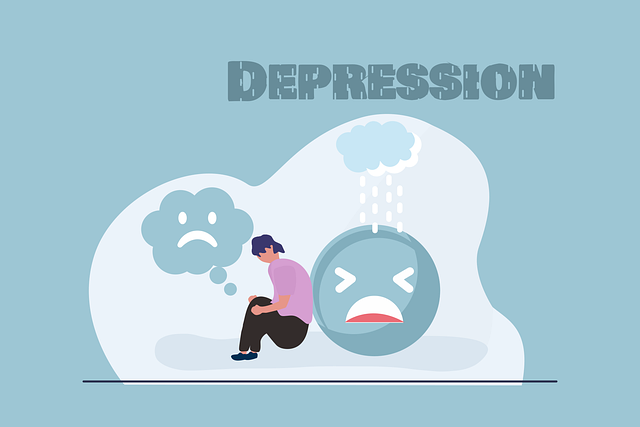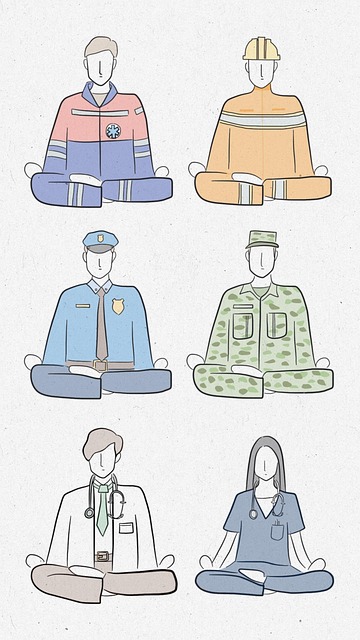Louisville Anxiety Therapy leverages the RFM (Risk, Resilience, Mental Health) framework to build resilience, a key mental wellness pillar. They integrate risk management planning into therapy, empower clients with stress management tools, and promote mental health literacy through community campaigns. Using mindfulness, cognitive reframing, and self-care strategies, their approach effectively reduces anxiety symptoms, prevents burnout, and fosters healthier relationships, particularly in stressful professions.
“In today’s fast-paced world, building resilience is key to navigating life’s challenges. This article explores a powerful tool, RFM (Resilience, Flexibility, and Mastery), designed to enhance mental well-being, particularly for those seeking Louisville Anxiety Therapy. We’ll delve into how RFM fosters adaptability and coping strategies, offering practical exercises to strengthen resilience. By the end, readers will understand the profound impact of these techniques on overcoming anxiety and improving overall mental health.”
- Understanding RFM and its Role in Resilience Building
- Exercises to Enhance Resilience: A Practical Guide for Louisville Anxiety Therapy
- The Impact of RFM on Mental Well-being and Overcoming Anxiety
Understanding RFM and its Role in Resilience Building

At Louisville Anxiety Therapy, we recognize that building resilience is a cornerstone of mental wellness. This concept, often simplified as RFM (Risk, Resilience, and Mental Health), provides a structured framework to understand and strengthen an individual’s ability to cope with challenges. Risk Management Planning for Mental Health Professionals isn’t just about identifying potential hazards; it’s a proactive approach to ensure the well-being of both clients and practitioners. By integrating resilience building exercises into therapy sessions, we equip our clients with powerful tools to navigate life’s storms.
This process involves fostering an awareness of personal strengths and coping mechanisms while promoting healthy strategies for stress management. Public Awareness Campaigns Development can play a significant role in this, by educating the community on the importance of mental health and providing accessible resources for building resilience. Through these initiatives, Louisville Anxiety Therapy strives to create a supportive environment that empowers individuals to lead fulfilling lives despite life’s uncertainties.
Exercises to Enhance Resilience: A Practical Guide for Louisville Anxiety Therapy

Building resilience is an essential aspect of managing anxiety and preventing burnout, particularly in stressful professions like healthcare. Louisville Anxiety Therapy offers practical exercises to help individuals navigate challenges and cultivate inner strength. One effective strategy involves mindfulness practices, such as meditation and deep breathing techniques, which can reduce stress and improve emotional regulation. By integrating these tools into daily routines, individuals learn to respond rather than react to anxiety-provoking situations.
Additionally, cognitive reframing techniques empower individuals to challenge negative thought patterns associated with anxiety. Through Louisville Anxiety Therapy’s guided exercises, clients develop a more balanced perspective, fostering resilience in the face of adversity. These methods are especially valuable for healthcare providers implementing burnout prevention strategies, as they promote self-care and enhance overall well-being.
The Impact of RFM on Mental Well-being and Overcoming Anxiety

The practice of RFM (Resilience, Flexibility, and Mastery) has been shown to significantly impact mental well-being, particularly in mitigating anxiety. By focusing on these key areas, individuals can develop a stronger sense of resilience, enabling them to better cope with stressful situations and challenging circumstances. Louisville Anxiety Therapy sessions often incorporate RFM techniques to help clients manage anxiety symptoms and improve their overall quality of life.
Resilience building exercises, for instance, teach individuals how to adapt and bounce back from setbacks, fostering a positive mindset that resists the grip of anxious thoughts. This process involves learning effective coping strategies and cultivating self-esteem improvement, which are crucial components of mental health education programs design. Social skills training is another aspect that can be enhanced through RFM practices, promoting healthier interactions and supportive relationships, ultimately contributing to better mental health outcomes.
Resilience is a powerful tool in navigating life’s challenges, especially for individuals seeking Louisville anxiety therapy. By understanding RFM (Resourcefulness, Flexibility, and Mastery) and incorporating targeted exercises, one can significantly enhance mental well-being and overcome anxiety. These practical strategies empower folks to embrace adversity, fostering a sense of control and adaptability. Through dedicated practice, the benefits of RFM extend beyond therapy sessions, enabling individuals to lead more fulfilling lives.











